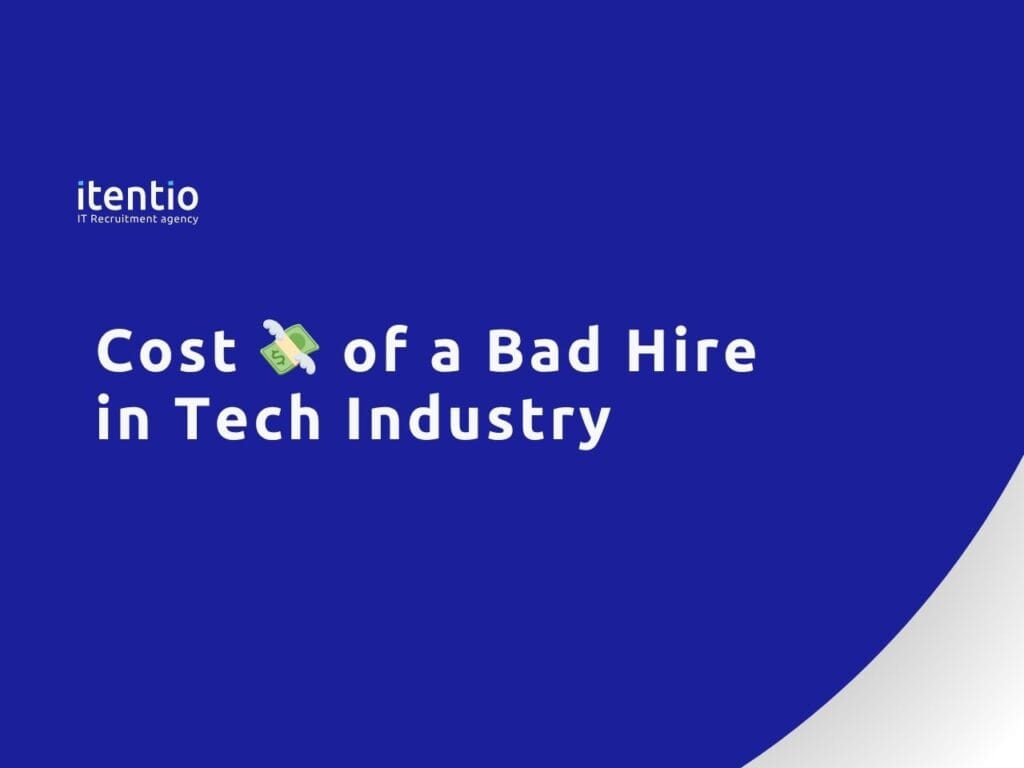When it comes to the recruitment process in Poland, time is of the essence. Candidates are eager to secure a job quickly, while companies want to find the best talent efficiently. Thanks to its large pool of skilled developers, competitive costs, and high-quality standards, Poland is one of Europe’s most attractive destinations for tech offshoring and outsourcing.
Introduction
Poland has over 400,000 IT professionals. Poland ranked third in the HackerRank Developer Skills Report, which measured developers’ coding skills from 50 countries.
However, hiring the best IT talent in Poland might take a long time. The recruitment process can take a long and be complex. It depends on factors such as the industry, the position, the location, and the employer. As a result, both candidates and companies may face challenges and frustrations during the hiring process.
This article will give you an overview of the IT recruitment process in Poland. We will consider its acceptable length and suggest typical stages. Our tips will help you optimize your hiring process and attract the best IT talent in Poland.
What is the length of the recruitment process in Poland?
The IT recruitment process in Poland might not be a quick one. In Poland, the length of the recruitment process and the number of stages can vary significantly.
The Polish IT sector is one of the fastest-growing and most competitive sectors. That means the hiring process can be shorter or longer depending on the demand and supply of IT talent.
According to Glassdoor’s report, the time to hire in Poland is 25,9 days (3,7 weeks).
Statista provides the information that the average duration of recruitment processes for specialized and managerial positions in Poland in 2022 for the IT sector was 4,3 weeks.
Our internal estimations show that the typical time to fill the position of an experienced software engineer in Poland is around 3-6 weeks.
Several factors affect the length of the IT recruitment process in Poland, such as:
- The talent competition: Poland has a solid pool of skilled IT professionals but faces high demand from domestic and foreign companies. Moreover, when it comes to niche industries. It creates a competitive market where candidates have more options and decisive power, and employers must work harder to attract and retain them.
- The availability of skilled employees: Poland has a shortage of IT specialists, especially in cloud computing, cybersecurity, and artificial intelligence. It means employers must search longer and wider to find suitable candidates for their IT positions.
- The legal regulations: Poland has complex and rigid labor laws, making the hiring process more difficult and time-consuming. For example, employers must comply with various rules and obligations regarding the employment contract, like the probation period, the notice period, contract termination, and the social security contributions. Moreover, employers might deal with different types of contracts. For instance, permanent, temporary, B2B, or project-based contracts. These contract types can affect the hiring process and employee retention.
- The cultural differences: Poland has a distinct culture and work ethic, which can influence the hiring process and the candidate experience. Polish candidates value honesty, commitment, and stability, making them selective and cautious in their job search.
From our perspective, the ideal length of the recruitment process in Poland should be two weeks, with a maximum of three weeks, to avoid losing skilled candidates.
This time frame allows companies to conduct thorough assessments while respecting the time constraints of candidates. A shorter recruitment process may not provide enough time for a thorough evaluation. In comparison, a more lengthy process can unnecessarily prolong the hiring decision.
How many steps should be in an IT recruitment process in Poland?
The IT recruitment process in Poland is not a one-size-fits-all approach. The stages’ number and order may vary depending on the employer and the position.
However, there are some common steps that most IT candidates can expect to go through when applying for a job in Poland. Let’s consider the standard recruitment process in Poland within the IT market.
First step – HR or Recruiter Interview
After the online application, when candidates submit their CV and cover letter through online platforms or email, they will most likely be asked to have a phone or video interview with the hiring company’s or IT recruitment agency’s recruiter or HR specialist for a short conversation regarding previous experience, education, motivation, skills, personality type, foreign language skills (if required), expectations, etc to estimate fit for the position. The recruiter may also provide more information about the company, the position, and the next steps of the recruitment process.
It also can be automated by utilizing online platforms and tests to conduct behavioral assessments to filter out candidates who do not meet the minimum requirements. However, it might be showing less personal touch from the company.
Second stage – Technical Interview
The following step is the interview with a business line representative, where candidates have a face-to-face or video interview with a manager, team leader, or team members to evaluate their technical knowledge, problem-solving abilities, and personality. The interview may include technical questions, coding challenges, case studies, or scenarios related to the position. The interview aims to assess the candidate’s technical skills, as well as their communication, collaboration, and cultural fit.
Third step – Management Interview
This stage is usually a managerial interview during which the candidate will have an interview with the manager or senior management (depending on the company’s size and internal processes) and have a specific, more high-level system interview with architecture-related questions and/or behavioral questions, such as how the candidate handles stress, conflict, or feedback. It could also include various tasks, such as case studies or simulations, to demonstrate their competencies, problem-solving abilities, and initiative.
Job Offer and Contract
After these steps, the final of the process is the job offer, where candidates receive a formal job offer, which includes the salary, benefits, and contract details. The job offer may be sent by email, phone, or in person and may be conditional or unconditional. The candidate may accept, reject, or negotiate the job offer, depending on their preferences and expectations.
Before the job offer, some companies might ask for a reference check, where candidates provide references from previous employers or colleagues that will be contacted by the hiring company’s recruiter or HR to verify their performance and character. The references may be asked about the candidate’s work quality, achievements, skills, attitude, etc. The reference check should confirm the candidate’s suitability for the open position and identify potential red flags or areas of improvement.
The end of the process is the contract signing, where candidates accept the job offer and sign the employment or B2B contract. The contract may be permanent, temporary, or project-based by type. It may include clauses like trial period, notice period, termination conditions, confidentiality, intellectual property transfer, and non-competition. The contract signing marks the end of the recruitment process and the beginning of the employment.
Conclusion
Based on the overview we made in this article regarding the IT recruitment process in Poland, its length, and its stages, we can conclude the following. The reasonable number of recruitment stages in Poland is around two or three on the company’s side (excluding the screening call with the external recruiter or internal HR). Such a number ensures that candidates can showcase their skills and experience in a manageable time.
The length of the IT recruitment process in Poland and the number of steps are based on the role’s seniority and the company’s preferred/existing process structure, but it is excellent if its length is around 2-3 weeks. Having a recruitment process that is too short may lead to hasty decisions, potentially resulting in the hiring of unsuitable candidates. On the other hand, an excessively long process can cause frustration for candidates, leading to qualified candidates accepting offers elsewhere.
Companies that want to hire in Poland should find a balance between evaluations and the IT recruitment process in order to attract and retain the best talent.
We hope this article gives you a better understanding of the steps and longevity of the IT recruitment process in Poland. If you seek more tips and resources regarding efficient IT recruitment in Poland, you can download our report. You can contact us for a consultation or if you need a professional IT recruitment services in Poland.
If you want to get more free information on How to Hire Top IT Talent in Poland, you can download our free guide below →
Comprehensive Guide For Tech Companies:
How to Hire Top IT Talent in Poland Without Cost Implications
Even If You Have No Hiring Experience in the Polish Job Market




